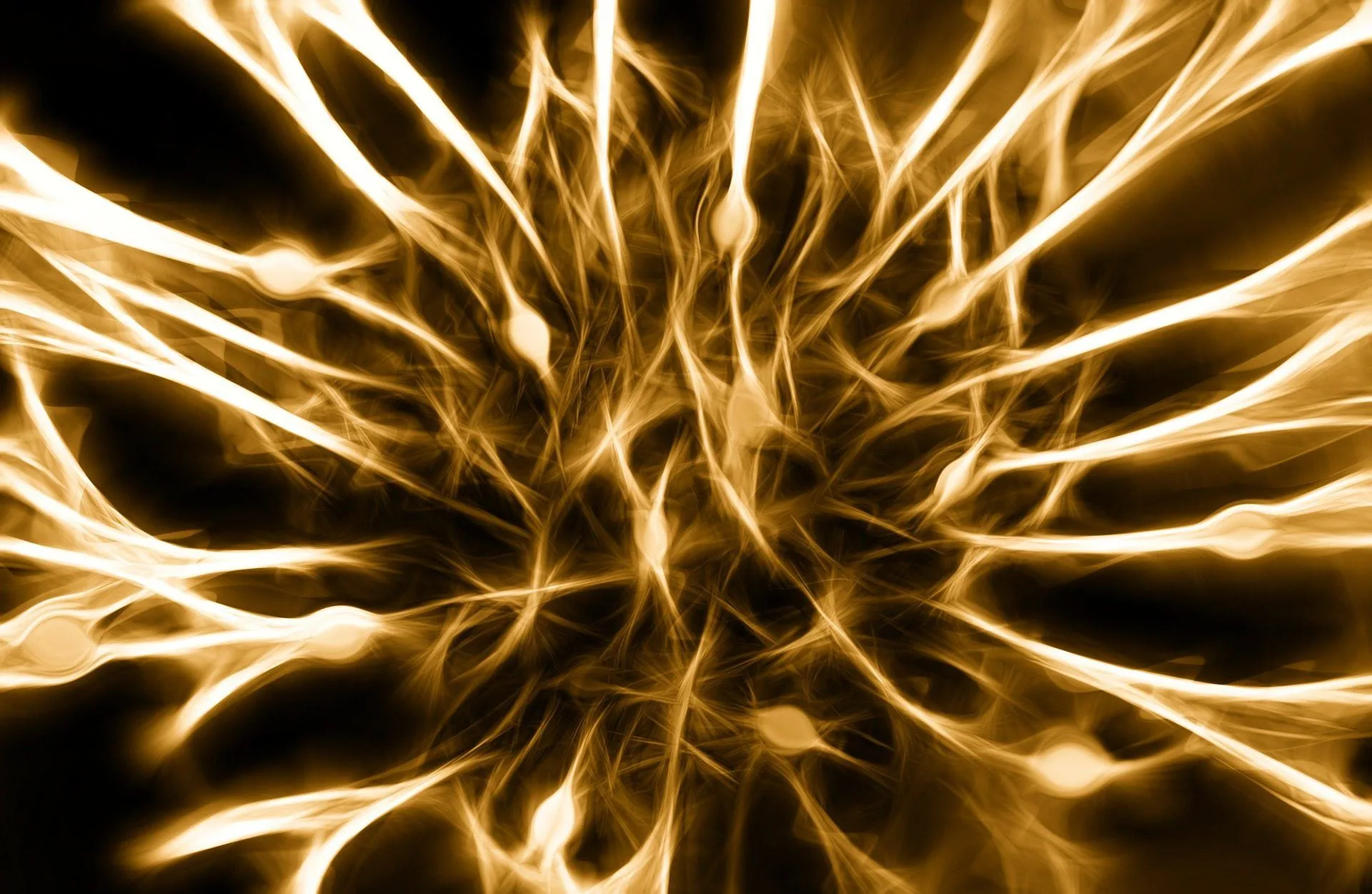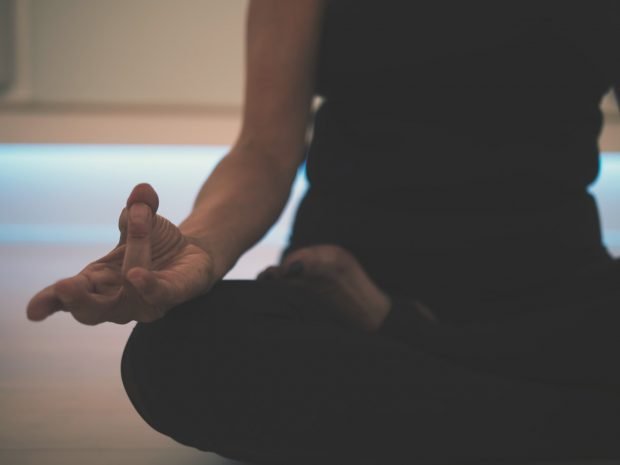Are stress and anxiety affecting your mental health? There are ways you can stimulate your vagus nerve to promote a healthier mental state.
One stressful 9 to 5 shift can ruin your mood for a day. But, if that one day becomes two or more, that stress can become a chronic problem.
Managing stress for a day is doable, but chronic stress is something entirely different. Being under constant stress can ruin you, both mentally and physically. Stress can lead to anxiety, emotional pain, depression etc.
Long term emotional stress, loneliness, depression etc, can negatively affect your mental health. Stress- and emotional management is vital part of keeping your mind and body healthy.
Using different techniques to help you deal with your mental health problem is a must when you want to live a happy, peaceful and fulfilling life. One technique that you can use is stimulation of your vagus nerve, to promote better mental health.
Learning About Nerves
Our central nervous system (CNS) is in charge of sending messages back and forth through our body and brain. Through our nerves, the brain receives messages from our body, the brain then sends commands back to your body, with instructions on how it should perform these commands. These commands can be sensory or motoric, or both, depending on the type of nerve.
One of these nerves is the vagus nerve, which handles some autonomic nervous system responses. The autonomic nervous system is a part of the CNS that regulates our automatic physical activities. For example, we don’t have to think about breathing or making our hearts beat. These things happen naturally and are controlled by our brain, with the help of our nerves in the autonomic nervous system.

Photo by engin akyurt on Unsplash
The Autonomic Nervous System
The autonomic nervous system is part of the peripheral nervous system, the section of nerves that are outside of the central nervous system. As mentioned before, these control our automatic physiological responses, such as breathing, digesting, blood pressure, etc.
When our body performs these actions, we don’t have to consciously think about them. There are two main parts of the autonomic nervous system:
Sympathetic Nervous System
One is the sympathetic nervous system(SNS) that prepares our body for any perceived outer dangers. This automatic response occurs when we feel stressed. Our brain registers the stress and immediately puts the body in emergency mode.
During the alerted flight or fight response, our nerves send commands to various parts of our body, to prepare it for a possible threat. More of our physical resources are activated and the blood flows to the muscles increases. Our breathing and heartbeat both increase. Our body starts to burn more carbohydrates, and we feel more energized and alert.
Parasympathetic Nervous System
However, when the possible danger has passed, the body needs to calm down from that elevated state and return to its natural resting position. This is done by the parasympathetic nervous system(PNS).
Post-stress, the body starts conserving energy again. The blood flow slows down and the blood pressure drops. Our heartbeat and breathing slow down and the body relaxes. All of these automatic responses are controlled by the PNS.
The Importance of the Vagus Nerve
The long and complicated vagus nerve emerges straight from the brain and travels through the brainstem. From there it branches off to different vital parts of the body, it travels from the neck, arms, chest and down to the digestive system. This assists in many sensory and motoric activities.
Some functions of the vagus nerve include regulating the blood pressure, heartbeat, respiration rate, vasodilation, vasoconstriction, a few skeletal muscle controls and reflex responses like gagging, swallowing and vomiting.
How Can Stimulating the Vagus Nerve Help?
When the parasympathetic nervous system is activated, the body will be brought to its natural and peaceful state. The natural restful state of the body’s internal environment is called homeostasis.
When we are constantly stressed, our sympathetic nervous system takes over and becomes dominant, while the parasympathetic nervous system backs down. This throws your body out of balance and forces it to stay continuously elevated.
That elevated state is essential for our survival. If you want to avoid danger or need to handle a threat, you’ll need your heart to race, your blood to pump faster, and your muscles to work harder. You must also be able to return to your body’s natural restful state once the threat has been eliminated.
If imbalances in your body remain over an extended length of time, bigger issues will arise. Too much stress can damage the parasympathetic nervous system, causing stress coping disability.
By stimulating the vagus nerve you can activate the PNS. This will help your body to cope with stress and uncontrollable emotions by bringing your body back to its natural resting state and maintaining homeostasis.
What is Vagal Tone and Why is it Important?
Vagal tone is the rate of vagus nerve activity. The parasympathetic nervous system is activated by increasing the vagal tone, and having a higher vagal tone indicates your body can recuperate faster after it goes through stress.
About a decade ago, researchers found a connection between having a high vagal tone, a positive mindset and good health. The higher your vagal tone is, the better your physical and mental health will be.
Strangely enough, this works both ways, as good mental and physical health often means a high vagal tone.
A way to calculate vagal tone is the Heart Rate Variability(HRV). This is simply the rate of variation in the time-lapse between heartbeats. When your heart rate variability is high, it shows that your body goes from both parasympathetic and sympathetic efficiently.
This indicates that your neurological system is in good working order, that your body adapts to change efficiently and tends to optimize its performance.
Ways To Stimulate The Vagus Nerve
Breathing
Taking your time and focusing on your breathing can help you stimulate your vagus nerve. Taking deep, heavy breaths can help your body uphold its natural restful state. When you breathe in, SNS is activated, and when you breathe out, PNS is triggered.
The vagus nerve assists in the functions of the throat, lungs and heart. Slowly breathing in and out affects the blood pressure around your heart and lungs, encouraging your blood vessels to expand to lower your blood pressure. Hence, the nerve is stimulated and slowly puts your body in a relaxed state.
Meditation
Meditation is a great way to establish peace and harmony in your body and soul. One technique used in meditation is to focus on taking deep and controlled breaths. As mentioned before, this helps trigger the vagus nerve.
During meditation, when you decrease your physical and mental activity, you put yourself in a relaxed and peaceful state. However, you cannot do that without the help of your PNS.
People often hum and chant when meditating. When we use our mouth to make sounds and vibrations, we trigger the motoric functions that are regulated by the vagus nerve. Hence, meditation is a vagus nerve stimulation tool that helps activate it in multiple ways.
Stimulation of Some Muscles in the Throat & Mouth
The vagus nerve controls the motoric responses for some of our skeletal muscles, most of which are situated in the throat and mouth area. When you put these muscles to use, the vagus nerve will get stimulated.
A great way to do that is by gargling. By using warm water when you gargle, you are stimulating the nerve with both physical activity and heat.
As mentioned before, humming and chanting also trigger our throat muscles, by activating our vagal responses.
Another way you can do that is by singing. When you sing, you use your throat muscles, and your vagus nerve is instantly triggered. The movement of the tongue also stimulates the vagus nerve. Tongue exercises can also encourage a vagal response.
Massages
Massages are an excellent way to help you relax. It induces relaxation and promotes balance in your body. Multiple nerves can be stimulated at the same time with a full-body massage. As relaxation can’t occur without a PNS response, hiring a massage therapist will help you activate vagal stimulation.
Foot massages have also shown signs of triggering vagal responses, however, this has not been researched any further. If you want to go for a specific type of massage to trigger your nerves, go for an ear massage. The Vagus nerve helps control the functionality of the ears and therefore gets stimulated when they are being massaged.
Exercise
Exercise is always great for your physical and mental well-being. When we perform a cardiovascular workout, it heightens the sympathetic nervous system. Sudden intense physical activity activates a cloud of SNS activities, but it is dependent on regular physical exercise.
Exercise rapidly increases your heart rate and is related to the stimulation of the vagus nerve. When the heart beats faster from cardiovascular exercise, the HRV rate increases.
When the exercise ends, this induced state of exhilaration is immediately lowered. This triggers PNS response in our body, working to activate a more efficient state of relaxation.
Nerve Stimulation Devices
The advancement of technology has brought in many helpful devices, both invasive and non-invasive, that can be used to send electrical impulses directly to the vagus nerve for stimulation. These devices send light electric impulses to the nerve through the electrode that has access to the vagus nerve.
Some devices work like simple accessories that are in contact with the skin, while others are inserted into the skin and are connected to deeper tissue, which brings it closer to the nerves. The invasive devices often function and look like pacemakers. This kind of device has been used to treat patients suffering from seizures, since 1997, when it was first introduced.
Cold Exposure
To use cold exposure to stimulate your nerves is like using a kind of shock therapy, to push your body to rapidly go from one state to another.
Being exposed to sudden cold temperatures, like when we take a cold shower or splash ice-cold water onto our face, our body state changes from relaxed to immediate alert.
 Even though what exactly triggers this vagal activity, caused by cold exposure, is not completely understood, multiple studies have shown that this happens with both humans and animals. This kind of rapid change and stimulation of the physical environment activates a vagus nerve response.
Even though what exactly triggers this vagal activity, caused by cold exposure, is not completely understood, multiple studies have shown that this happens with both humans and animals. This kind of rapid change and stimulation of the physical environment activates a vagus nerve response.
Optimism And Happiness
When you laugh, your face immediately relaxes. Staying optimistic and happy automatically turns your focus away from emotional stress.
You can reach pockets of homeostasis throughout the day by turning your attention away from sadness, worries and negative thoughts, and consciously start focusing on happy and positive thoughts instead. This is a great way to activate more vagal responses.
Bottom Line
Now that you know how important the vagus nerve is to our mental and physical well-being, you can deliberately stimulate it to help increase your mental strength. Use the techniques mentioned here and allow yourself to enjoy the experience of being in a natural state of relaxation and balance.




![women [longevity live]](https://longevitylive.com/wp-content/uploads/2020/01/photo-of-women-walking-down-the-street-1116984-100x100.jpg)










